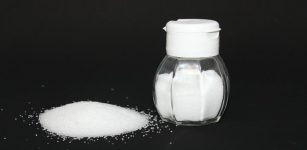Why Young Adult Drinkers Choose Alcohol-Free Days?
Eddie Gonzales Jr. – MessageToEagle.com – Researchers investigate why young adults abstain from drinking on specific days. Despite declining alcohol use among this group, hazardous drinking and its negative effects remain prevalent.
Image credit: Resurs Rehabilitering
Brooke Arterberry and colleagues from the Institute for Social Research examined young adults’ daily reasons for abstaining from alcohol, considering factors like demographics, day of the week, drinking motivations, and recent alcohol consumption.
Data came from 614 young adults who had consumed alcohol in the past month but abstained for at least one day. They completed an online survey about their drinking habits.
Alcohol use categories: moderate drinking (<5 drinks, 50%), binge drinking (5+ drinks, 31%), and high-intensity drinking (10+ drinks, 19%).
Over two weeks, participants completed daily surveys on their alcohol use and drinking motives. Reasons included social interaction, coping, enjoyment, and fitting in.
The surveys provided 12 reasons for abstaining from alcohol, generating 5, 546 reports on nondrinking days. Top reasons included:
1. No interest in alcohol
2. Avoiding intoxication
3. Not typically drinking on that weekday
4. Preventing work or school interference
5. Prioritizing other expenses
Arterberry noted that reasons for not drinking varied by gender, race/ethnicity, day of the week, and personal motives. Women were more likely than men to cite lack of interest, avoiding intoxication, and recent hangovers as reasons to abstain.
Hispanic and four-year college students wanted to avoid drinking due to potential negative impacts on school or work. Non-Hispanic white young adults more often cited a lack of interest in alcohol that day.
Young adults with social drinking motives showed less concern about alcohol and its consequences. Conversely, those who drink to cope were more likely to cite negative effects, like upsetting others, as reasons to abstain.
People reporting other motives were more likely to use other drugs. Those with conformity motives often cited situational barriers, like lacking drinking companions.
The study improves our understanding of young adults’ drinking motives. Arterberry noted it could inform interventions addressing reasons to drink and abstain, potentially enhancing public health messaging and tailoring prevention strategies.
Most participants reported occasional disinterest in drinking or getting drunk.
A vast majority of participants said that on some days, they weren’t interested in drinking and didn’t want to get drunk, Arterberry noted in a press release.
The study is published in Alcohol: Clinical And Experimental Research.
Written by Eddie Gonzales Jr. – MessageToEagle.com Staff Writer











